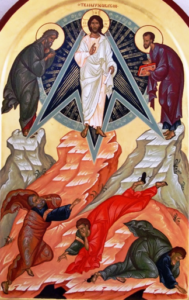By Christine Sunderland
 As I reflect on my next novel, The Music of the Mountain, I return to the importance of creative and compelling characters. In some way my characters must change in the timeline of the plot, and this arc is determined by their own ability to change, their creative ability to learn, turn, confess, repent, and be reborn again and again. It is for this reason I often feature literary and thoughtful characters who, when placed together in a setting, will determine the storyline: librarians, authors, scholars, teachers, preachers, priests, academics – all those who ask the great questions: what is the meaning of life, why am I here, is there a God?
As I reflect on my next novel, The Music of the Mountain, I return to the importance of creative and compelling characters. In some way my characters must change in the timeline of the plot, and this arc is determined by their own ability to change, their creative ability to learn, turn, confess, repent, and be reborn again and again. It is for this reason I often feature literary and thoughtful characters who, when placed together in a setting, will determine the storyline: librarians, authors, scholars, teachers, preachers, priests, academics – all those who ask the great questions: what is the meaning of life, why am I here, is there a God?
The compelling protagonist must desire something for good reasons; she must try to achieve it at cost to herself; she takes risks, but for noble ideals; she does not allow the ends to justify the means; she is good and true, and her spirit is beautiful; she is in love with life; she suffers, and her suffering is transformed by the Cross. She is redeemed.
On August 6, many Christians celebrate the Feast of the Transfiguration of Christ. We are told in Holy Scripture that Jesus took Peter, James, and John up into a mountain to pray. There he spoke with Moses and Elijah about his coming death. Luke tells us that as he prayed, his “countenance was altered, and his raiment was white and glistering” (Luke 9:28). Matthew says that he “was transfigured before them, and his face did shine as the sun, and his raiment was white as the light” (Matthew 17:2). Mark writes, “he was transfigured before them… And his raiment became shining, exceeding white as snow; so as no fuller on earth can white them.” (Mark 9:2-3) (KJV)
The light Christ encounters in these moments transfigured his face and whitened his robes. He was pulled out of time into Eternity, yet those on Earth could see him. He became a ladder or a way that connected Heaven and Earth, just as the Cross, later, would bridge Heaven and Earth.
Christian novelists are called to do the same. Through their words and their creative, compelling characters, they fashion a story that is imbued with transfigurations. Such heavenly light can land in many places, pages, paragraphs, lines, or words of the novel, but will largely need to be seen by a creative character, one who can see the whitened image, the glistering raiment, the sun shining through this vision, bathing the reader in glory. The readers will dwell in a moment of recognition, pause to marvel without fully understanding. For they too will be transfigured.
Creative characters can see Heaven all around them. They may not realize it is Heaven, but they marvel at the details of the natural world, the unique beauties of each person, the sensory delights of smell, sound, seeing, touch, and taste. They intuit that all life is sacred, a necessary harmony of the spheres, the perfect ratios and numbers that make for a melody one sings without thinking, a lullaby from long ago.
And so, creative characters honor history. They learn from the past, not only their national, state, local, or even family past, but from their personal past and from others’ personal histories. They recognize the value of truth because they demand the truest accounts from the past they can gather. For without creatively delving into the past, these characters know they cannot understand the present, nor plan the future. They understand they are in time and bound by time, and yet time past is integral to who they are in time present. They know they are stepping through their own hours, days, and years in time, whether they wish to or not, and that to be good, they must be righteous, and to be righteous they must inform the future with their voice.
They must love others and suffer for that love. They take responsibility for their actions, and righteousness becomes their standard of goodness, a righteousness found in natural moral law, embraced by Classical and Judeo-Christian traditions, weaving through over two thousand years to the present, cultures transfigured by the desire for truth, beauty, and goodness, for the benefice of the polis.
The antagonist antagonizes. He is not compelling for he drifts with the tide and the fashion, slipping and sliding, blown by the wind. He desires to cancel creativity which he sees as triggering unhappiness. He desires sameness, so that no-one is better than he is. He cannot see the beauty around him, nor the sanctity of life, nor the goodness of sacrificial love for others. Instead, he sees ugliness, death, and grievance, himself a victim not a victor. He becomes his own idol and careful concern, and self-love is his first allegiance. He therefore sees physical pleasure as a prime goal to express his self-love. He is unhappy and tormented and he blames others for his unhappiness and torment. Like a whirling dervish, he spins to the center of the Earth.
It is said that freedom allows sin into our world. Creative characters recognize this fallen state and seek to cherish freedom while protecting the innocent from harm. They understand that life is delicate and precious, and that the beauty of righteousness lies in the forging of good law and equal justice. 
And so my characters seek out Angel Mountain. They are fleeing pandemics, mistaken masking, forced vaccines, treacherous tyranny and anarchy. With the collapse of the electrical grid, food and fuel are scarce. Vigilantes patrol towns. Transportation is stalled. Each character, however, has a memory of another and better time, a time of reading or being read to, a time of singing or being sung to, a time of stories and friendship and family. They recall Angel Mountain. They recall it was a holy shrine of a hermit who passed away years ago. They recall pilgrimages and prayers and songs.
They make their way to the mountain, hearing the music and following the melody, drawn to beauty, and seeking righteousness.
Christian novelists develop compelling and creative characters transfigured by truth, beauty, and righteousness, linking Earth and Heaven. @ChristineSunderland #ACFWBlogs #writetip #critiques #ACFWCommunity Click To Tweet Christine Sunderland has authored seven award-winning novels: Pilgrimage, set in Italy, Offerings, set in France, Inheritance, set in England, Hana-lani, set in Hawaii, The Magdalene Mystery, set in Rome and Provence (all Oaktara), The Fire Trail (eLectio), set at UC Berkeley, and Angel Mountain (Wipf and Stock), set on Mount Diablo, east of Berkeley. She serves as Managing Editor for the American Church Union and is a member of the Anglican Province of Christ the King. Visit Christine at www.ChristineSunderland.com (website and blog) and www.fictionfinder.com/book.
Christine Sunderland has authored seven award-winning novels: Pilgrimage, set in Italy, Offerings, set in France, Inheritance, set in England, Hana-lani, set in Hawaii, The Magdalene Mystery, set in Rome and Provence (all Oaktara), The Fire Trail (eLectio), set at UC Berkeley, and Angel Mountain (Wipf and Stock), set on Mount Diablo, east of Berkeley. She serves as Managing Editor for the American Church Union and is a member of the Anglican Province of Christ the King. Visit Christine at www.ChristineSunderland.com (website and blog) and www.fictionfinder.com/book.
